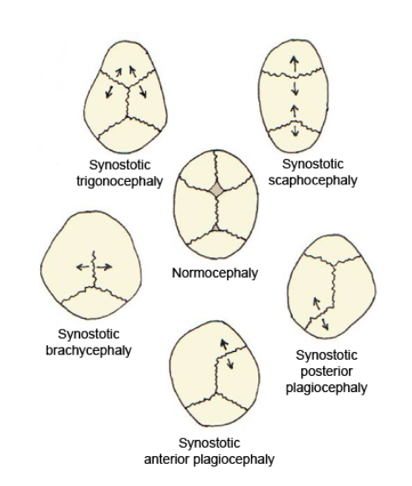Isolated Scaphocephaly

Isolated scaphocephaly is a form of nonsyndromic craniosynostosis characterized by premature fusion of the sagittal suture.
Epidemiology
It is a relatively common malformation accounting for around 50% of all cases of nonsyndromic craniosynostosis and with an incidence of 1/5,000 live births. Males are more frequently affected than females (male/female ratio of 3.5:1) and the frequency of affected twins is unexpectedly high.
Clinical description
The premature fusion of the sagittal suture results in compensatory anteroposterior elongation of the skull. The mean cranial length is significantly increased and the sagittal suture is larger than normal. Frontal bossing and occipital bulging may occur depending on the extent of the premature fusion. Elevated intracranial pressure is rare and intelligence is usually normal.
Etiology
The underlying cause of isolated scaphocephaly remains to be determined: a mutation in the TWIST1 gene (7p21) has been reported in a single case. However, the concordance rate in monozygotic twins was found to be 30%, suggesting some cases might be genetically determined, whereas environmental determinants are involved in others.
Diagnostic methods
Diagnosis is based on clinical examination and radiological evaluation by X-rays, 3D CT scans and/or MRI of the skull.
Differential diagnosis
Sagittal synostosis can be isolated or occur as part of a syndrome (such as familial scaphocephaly with radioulnar synostosis or sagittal craniosynostosis with Dandy-Walker malformation and hydrocephalus; see these terms). The syndromic and nonsyndromic forms can be clearly distinguished due to the absence in isolated scaphocephaly of additional clinical features.
Genetic counseling
The majority of cases are sporadic but familial cases with autosomal dominant inheritance have been described (6% of all cases).
Management and treatment
Management may involve cranial vault reconstructive surgery to correct skull shape.
Prognosis
The clinical outcome of patients having undergone surgery is usually good with normal intelligence and psychomotor development.